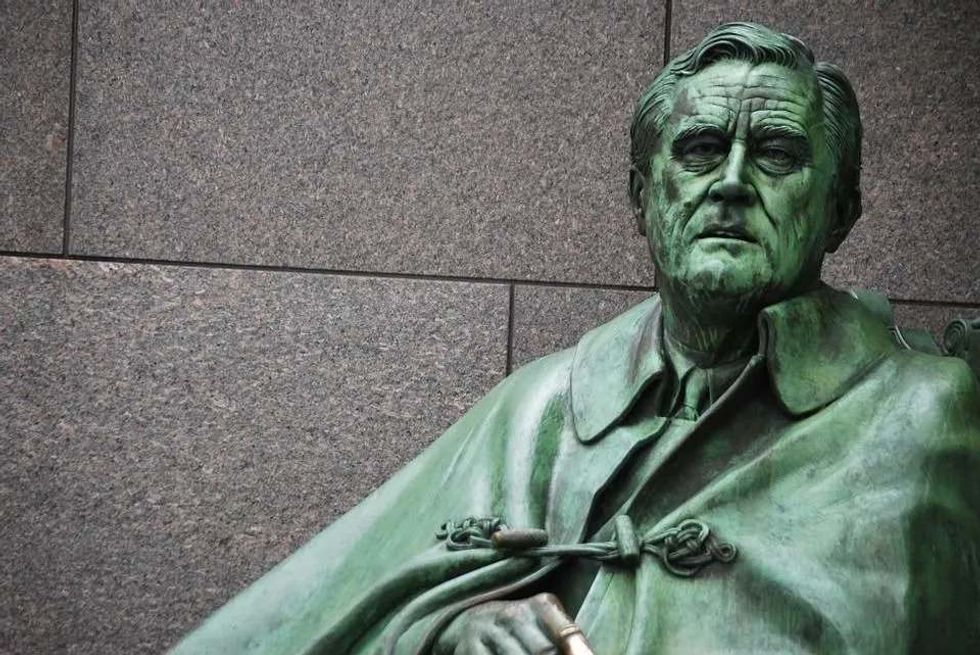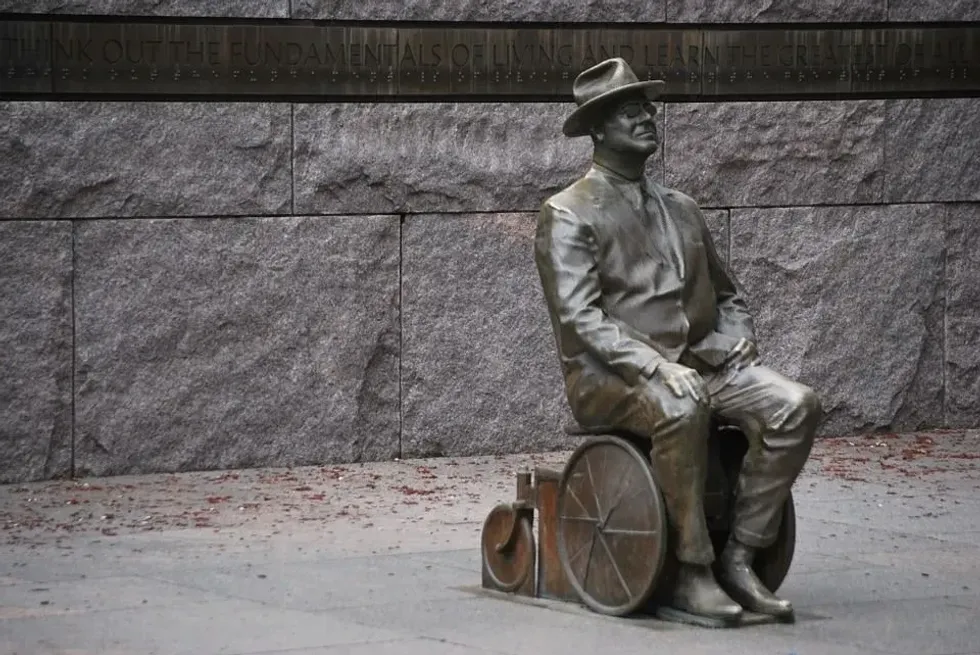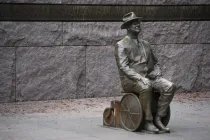The Square Deal: Teddy Roosevelt's Attempt To Improve Overall Health

Former President Roosevelt's Square Deal helped create the modern welfare state in America.
The Square Deal was an attempt by former President Roosevelt to improve the overall health of the people of America. He did this by implementing restructured government regulation a number of new policies and programs that would make it easier for people to get healthy food and exercise.
Theodore Roosevelt felt that it was important for people to have access to good food, exercise, and healthcare. The domestic program by Theodore Roosevelt was a huge undertaking, and it had a significant impact on the way Americans live today. Read to have a much better understanding of the Square Deal.
Teddy Roosevelt's Square Deal Control Of Corporations
Theodore Roosevelt believed that everyone should be treated equally, regardless of social status or wealth. The Square Deal project by Roosevelt helped create the modern welfare state in America.
One of the most important aspects of the Square Deal was Roosevelt's control of corporations. Roosevelt won against the corporations that were becoming too powerful and needed to be regulated. He passed a number of laws under the Supreme Court that limited the power of corporations and forced them to operate more transparently.
The Square Deal project from Roosevelt focuses on the Three C's, 'Control of Corporations,' 'Consumer Production,' and 'Conservation of Natural Resources.' The reforms established redefined the federal government, economy, and their relationships.
What did Teddy Roosevelt's Square Deal do?
Many Americans considered Roosevelt to be the leader of progressive movements. Before his presidency, William Lafayette Strong won the 1894 mayoral election. William Lafayette was a reform-minded Republican. He offered Roosevelt the position of the New York City Police Commissioners board member.
Shortly after becoming the President of commissioners, Roosevelt reformed the police force. As a New York City Police Commissioner, Roosevelt witnessed the poverty and deplorable living conditions. And after becoming New York's governor, he began addressing and creating reformed solutions to the problems causing trust, political corruption, and labor disputes.
After successful campaigns, William McKinley became the President after his vice-presidency in 1900. Unfortunately, President McKinley was shot by an assassin less than a year into his second team. After he died in 1901, Roosevelt began his first two terms in the White House at 42 years of age.
The key aspect of the Square Deal was Roosevelt's efforts to improve working conditions for American workers. Roosevelt believed that workers deserved to be treated fairly and have safe working conditions. He passed a number of laws that established minimum wage standards and created government agencies to inspect workplaces and enforce safety regulations.
Theodore Roosevelt's policies focus on retaining the fundamental relationship between the federal government and the economy. Roosevelt sought and achieved restructuring the American government regulation and rules of commerce by protecting laborers and consumers, creating a progressive era.
In Roosevelt's second term of presidency, Roosevelt pursued to extend the goals of the Square Deal. As a result, in 1903, Congress passed and renewed the 'Elkins Act' and 'Sherman Antitrust Act' respectively.
The act states that railroad companies were no longer allowed to give refunds or repay favored companies. The act was passed after small Midwestern farmers had unfair treatment by not allowing them equal access to the services of the railroad.
The primary acts also work to measure and regulate the labor hours of railroad companies, safeguard the lives of miners in the territories, and also engage in interstate commerce or operate in the District of Columbia, the Territories, the Panama Canal Zone, or US possessions, liable for death or injuries of employees while on the working duty.
Teddy Roosevelt's Square Deal Consumer Protection
Square Deal project consumer protection focuses on consumer protection. Roosevelt felt that consumers deserved to be protected from harmful products and unfair business practices. He passed a number of laws that established government agencies to regulate businesses and protect consumers.
Features of the Square Deal projects are a measure to provide eight hours a day for labor on irrigation works and abolishment of slavery and act is punishable by charges of contracts of not less than $10,000.
Other measures include securing employees' wages on public works, protecting the health of motormen and conductors in the Columbia, thorough inspection of steam vessels, and investigating women and child labor in the United States of America.
Finally, an important facet of the project is the creation of the first 'Federal Employment Service' in the Bureau of Immigration and Naturalization, Department of Commerce and Labor, in 1907.
The Square Deal was an important part of Teddy Roosevelt's presidency. Roosevelt's policies helped improve Americans' lives and laid the foundation for the modern welfare state. The Square Deal is still remembered as one of the most successful presidential administrations in American history.

Square Deal Speech By Teddy Roosevelt
In 1901, then-President Theodore Roosevelt gave a speech called the 'Square Deal,' which aimed to improve the overall health of Americans. The Square Deal was a response to the overwhelming and growing power of large businesses and industrialists at the time.
Roosevelt aimed that all Americans should be able to benefit from economic growth, not just those at the top. He pushed for reforms in business, labor, and agriculture that would help improve the quality of life for all Americans. One of his primary goals was to improve access to healthcare and make it more affordable for everyone.
Former President Roosevelt's speech on New York City league is as follows, 'I stand for the Square Deal.
The Square Deal is not only that each man shall be given a Square Deal, but it is also that each man shall have the substantial equality of opportunity to make of themselves all that they can and reward for equally good service.'
The speech was made while addressing the Boys' Progressive League in New York City on July 3, 1913.
Teddy Roosevelt's Square Deal Conservation
One of the most important aspects of the Square Deal was Roosevelt's dedication to conservation. He believed that it was important to preserve America's natural resources for future generations.
Roosevelt set aside millions of acres of land for national parks and forests. He also worked to improve the quality of water and air. Thanks to Roosevelt's efforts, Americans are able to enjoy the beauty of their country for years to come.
Some of the prominent features of Roosevelt's Project on Square Deal Conservation are the 1902 National Reclamation Act, 1906 Antiquities Act, and 1908 National Conservation Commission. Besides, the conservation project also includes establishing the 1905 National Forest Service, the 1905 Transfer Act, and the declaration of 18 national monuments.
The National Reclamation Act of 1902 created the first 21 federal irrigation projects. It is also dedicated to large-scale irrigation projects. One such project is Arizona's, Theodore Roosevelt Dam.
The Antiquities Act of 1906 is an act to preserve American antiquities. The act gave limited authority to the President on using particular public lands in America. The act led to establishing monuments like Grand Canyon National Park, Tumacacori National Historical Park, Chaco Culture National Historical Park, Petrified Forest National Park, Olympic National Parks, and Lassen Volcanic National Park.
In addition, Roosevelt used his authority to issue executive orders to establish 150 new national forests, increasing the landforms from 42 million ac (16.99 ha) to 172 million ac (69.61 ha). Roosevelt used his presidential authority to create 150 new national forests, also increasing the amount of protected land to 42 million acres and 172 million acres.
He also added 150 million ac (60.70 ha) to protect national forests by creating 18 national monuments and five national parks.
Roosevelt's pushed Congress to grant power to regulate the interstate railroad rates to the Interstate Commerce Commission (ICC). He also helped establish the 1906 Hepburn Act. It helped create the first proper regulatory agency for the federal government. The act also extended to ICC's authority to cover sleeping cars, oil pipelines, bridges, express companies, terminals, and ferries.
In 1906, Roosevelt pressed Congress to pass the Pure Food and Drug Act, which included meat inspection. It was created with a primary focus on assuring agencies for protection to consumers.
During Roosevelt's time in office, he completely changed the federal government's role in conservation. Roosevelt's pressed to extend the pension provisions of the federal government to all the Civil War Union veterans, regardless of whether they were disabled or not.
Theodore Roosevelt campaigned for 'New Nationalism,' which means the theme of leadership of progressivism. The theme aims to restore faith in the federal government, an activist presidency, support for a roll-call of progressive reform, the balance of public and compound interest, women suffrage, and an eight-hour work-day to abolish child labor and corporate regulation.
Other features include signing 16 million additional acres of Western forest, creating Tongass, Chugach forest reserves, small islands aside Hawaiian Islands Bird Reservation in Hawaii, and the first federal bird reserves in Florida Pelican Island (1903), and improvements of reservation of water power sites and waterways.
The Square Deal was an ambitious attempt by Former President Roosevelt's desire to improve Americans' overall health and well-being. While some aspects of the Square Deal were successful, others were not as effective. Nevertheless, Roosevelt's Square Deal helped create a more equal and just society in America.
Square Deal Teddy Roosevelt Details
Roosevelt's Square Deal helped to create the modern welfare state in America. Former President Roosevelt succeeded primarily towards accomplishing the goals and preceding for greater government involvement in the United States of America's economy.
Roosevelt sought a national corporation law and called for federal income tax, an inheritance tax where great family fortunes could not be inherited without the tax for generations. In the labor legislation area, Roosevelt limited the use of court injunctions against the labor unions during strikes.
The primary act from the Square Deal project is protective legislation to limit working hours, set minimum wages found across the country, and abolish child labor. He also passed a law to regulate the working conditions of women and establish new regulations for child labor. The law was passed by 28 states of the United States of America.
During his presidency, Roosevelt was also a dedicated conservationist, which made him set aside 200 million acres of national reserves, wildlife refuges, and reserves. He made Gifford Pinchot support conservation to lead his 1905 National Forest Service. The act took actions to preserve the natural beauty of America.
Roosevelt won the Nobel Peace Prize for his negotiations to end the Russo-Japanese War and lead the beginning of construction on the Panama Canal.
Some of the 'Square Deal' key components were ensuring that people had access to good food and providing healthcare for all Americans, bypassing the Food and Drug Act. The deal also focuses on treating everyone equally, regardless of social status or wealth.
FAQs
What was Teddy Roosevelt's Square Deal?
A: Theodore Roosevelt's domestic initiative program that focuses on providing equality to everyone irrespective of their social wealth and status is known as Square Deal, commonly referred to as the 'Three C's.'
What is the Square Deal, and why is it important?
A: Teddy Roosevelt's project aims at equal consideration of the interests of people of all concerns. This government initiative was a set of policies to prevent any labor abuses, enhance workplace safety, safeguard the natural landscape, and improve the health and well-being of Americans.
Is the phrase Square Deal associated with Theodore Roosevelt?
A: Theodore Roosevelt adopted the phrase 'Square Deal' to the domestic legislative program he initiated. He did not create the phrase; however, the phrase got linked to him in the public mind after the 1902 anthracite coal strike. The phrase was already familiar to 19th century Americans.
What reforms did Teddy Roosevelt achieve under his Square Deal?
A: Teddy Roosevelt's project was a domestic program commonly referred to as the 'Three C's.' They are conservation of natural resources, consumer protection, and control of corporations.
When was Theodore Roosevelt President?
A: Theodore Roosevelt was America's 26th President. He served in the presidency from September 14, 1901, to March 4, 1909. Roosevelt was often referred to by the names Teddy or TR (Roosevelt's initials). Roosevelt was commonly referred to as a politician, naturalist, conservationist, statesman, historian, and writer.
What is Theodore Roosevelt known for?
A: Theodore Roosevelt was famous for being the youngest President of the United States of America. He was known for leading a progressive movement named 'Square Deal.' The deal promised every citizen of America fairness, regulation of railroads, and pure food and drugs.
Which of the following groups was the Square Deal intended to help?
A: The Square Deal program was intended to help middle-class citizens by attacking bad trusts and plutocracy and simultaneously protecting the business regulation from the demands of organized labor unions.
We Want Your Photos!
More for You
Sources
https://apprend.io/apush/period-7/the-square-deal/
https://study.com/academy/lesson/the-square-deal-definition-lesson.html
https://millercenter.org/president/roosevelt/domestic-affairs
https://ap.gilderlehrman.org/essays/square-deal-theodore-roosevelt-and-themes-progressive-reform
Bachelor of Engineering specializing in Electrical and Electronics Engineering

Keerthana RamasamyBachelor of Engineering specializing in Electrical and Electronics Engineering
With a background in electrical and electronics engineering from Sri Ramakrishna Engineering College, Keerthana brings a unique blend of technical expertise and creative flair to her role as a content writer. Her natural curiosity and passion for exploring new career paths led her to the exciting world of content marketing, where she has honed her content optimization, SEO, and Google Analytics skills. Keerthana's experience as a Content Marketing Specialist at GetMyUni has provided her with hands-on experience in digital marketing and editing, allowing her to create engaging and impactful content.
Bachelor of Arts specializing in Economics

Gowri RaoBachelor of Arts specializing in Economics
With a bachelor's degree in Economics from Krea University, Gowri is a highly skilled data analyst and an expert in regression and causation modeling. Her interests in economic trends, finance, and investment research complement her professional expertise. In addition to her professional pursuits, Gowri enjoys swimming, running, and playing the drums, and she is also a talented tutor.
Disclaimer
1) Kidadl is independent and to make our service free to you the reader we are supported by advertising. We hope you love our recommendations for products and services! What we suggest is selected independently by the Kidadl team. If you purchase using the Buy Now button we may earn a small commission. This does not influence our choices. Prices are correct and items are available at the time the article was published but we cannot guarantee that on the time of reading. Please note that Kidadl is a participant in the Amazon Services LLC Associates Program, an affiliate advertising program designed to provide a means for sites to earn advertising fees by advertising and linking to Amazon. We also link to other websites, but are not responsible for their content.
2) At Kidadl, we strive to recommend the very best activities and events. We will always aim to give you accurate information at the date of publication - however, information does change, so it’s important you do your own research, double-check and make the decision that is right for your family. We recognise that not all activities and ideas are appropriate for all children and families or in all circumstances. Our recommended activities are based on age but these are a guide. We recommend that these ideas are used as inspiration, that ideas are undertaken with appropriate adult supervision, and that each adult uses their own discretion and knowledge of their children to consider the safety and suitability. Kidadl cannot accept liability for the execution of these ideas, and parental supervision is advised at all times, as safety is paramount. Anyone using the information provided by Kidadl does so at their own risk and we can not accept liability if things go wrong.
3) Because we are an educational resource, we have quotes and facts about a range of historical and modern figures. We do not endorse the actions of or rhetoric of all the people included in these collections, but we think they are important for growing minds to learn about under the guidance of parents or guardians.







